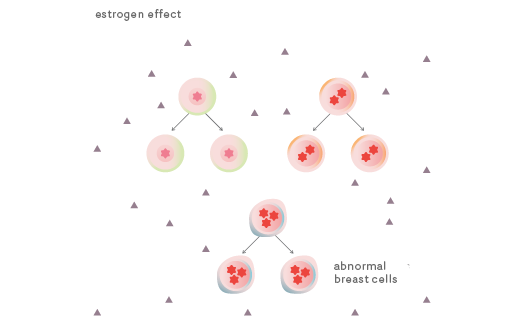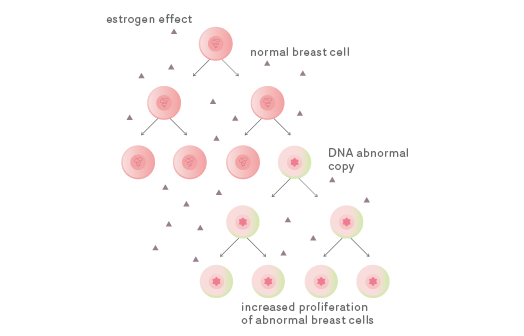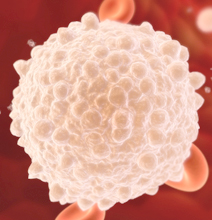Prevention in high-risk women
Tamoxifen (Novaldex®) has shown to be effective not only to control and treat breast cancer, but also to prevent the disease in high-risk women.
As an anti-estrogen, how can it prevent the disease?
Estrogens promote cellular multiplication and division, with two possible effects:
1. IF THERE IS A CELL WITH A GENETIC ERROR IN THE MAMMARY GLAND

In this case, estrogen will promote the multiplication of these cells increasing the number of genetically abnormal cells. The result is increased disease risk.
During cellular multiplication and division, genetic errors are common, but are normally quickly corrected by the cells' DNA repair mechanisms. With estrogens stimulating proliferation and hundred of new cells being produced, the chance of a genetic error not being detected raises, escalating the risk of disease.
2. IF THERE IS NO CELL WITH GENETIC ERRORS IN THE MAMAMRY GLAND

Even in this case, estrogens can promote carcinogenesis (cancer formation)
By blocking estrogen activity, Tamoxifen (Novaldex®) proved extremely effective at preventing breast cancer in women with hereditary BRCAs mutations. This is particularly relevant because this small group of women has a substantially higher chance of breast cancer than the general female population.





